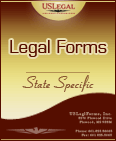Waiver of Moral Rights

The owner of a copyright has the right to exclude any other person from reproducing, preparing derivative works, distributing, performing, displaying, or using the work covered by copyright for a specific period of time. Copyrighted work can be a literary work, musical work, dramatic work, pantomime, choreographic work, pictorial work, graphic work, sculptural work, motion picture, audiovisual work, sound recording, architectural work, mask works fixed in semiconductor chip products, or a computer program. Only a concrete "medium of expression" can be copyrighted, facts, ideas, procedures, processes, systems, methods of operation, concepts, principles or discoveries cannot themselves be copyrighted. Items to be copyrighted must be original and not the result of copying another copyrighted property.
Some jurisdictions also recognize "moral rights" of the creator of a work, such as the right to be credited for the work. Moral rights are rights of creators of copyrighted works generally recognized in civil law jurisdictions and, to a lesser extent, in some common law jurisdictions. They include the right of attribution, the right to have a work published anonymously or under a pseudonym, and the right to the integrity of the work. The preserving of the integrity of the work bars the work from alteration, distortion, or mutilation. Anything else that may detract from the artist's relationship with the work even after it leaves the artist's possession or ownership may bring these moral rights into play. Moral rights are distinct from any economic rights tied to copyrights. Even if an artist has assigned his or her rights to a work to a third party, he or she still maintains the moral rights to the work, unless waived.
(more...)
Download: Waiver of Moral Rights
Available from: USLegalForms.com
SKU: US-01009DR
NOTICE: The information and links contained on this web page are intended only to be merely informative and are NOT intended to provide legal advice to any person/entity. Consult with and seek the advice of a qualified lawyer. E.&O.E. Click here for important legal disclaimer.

